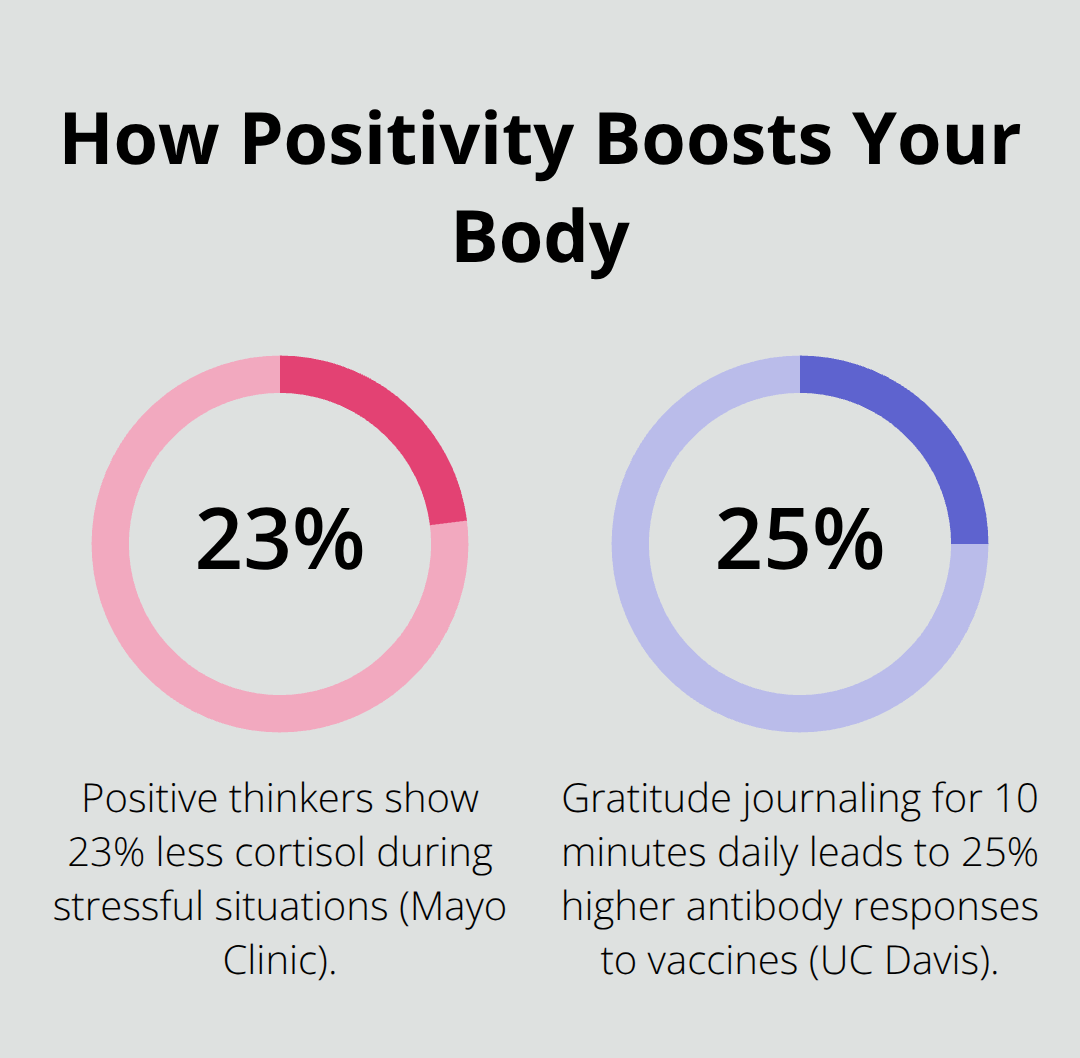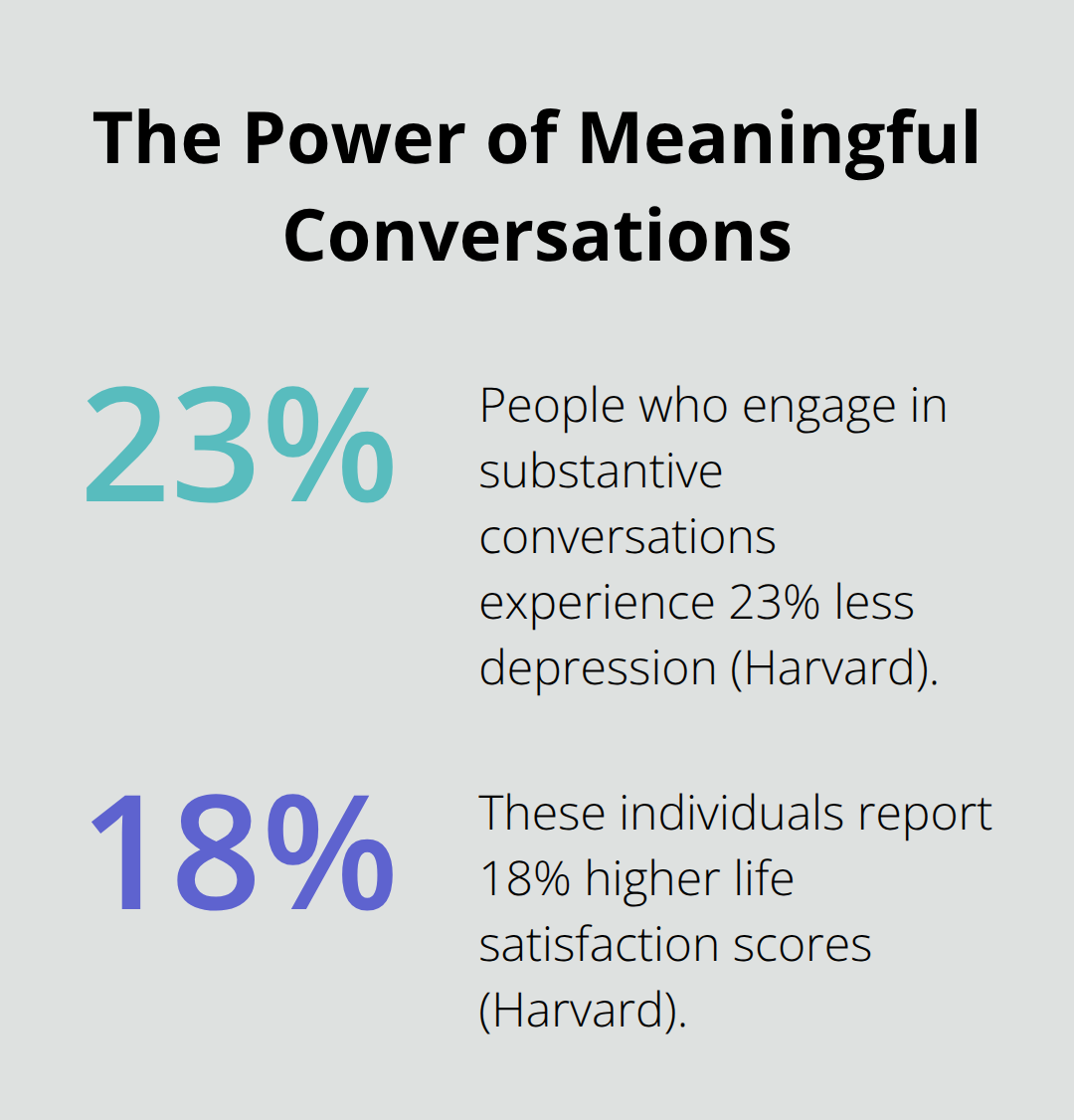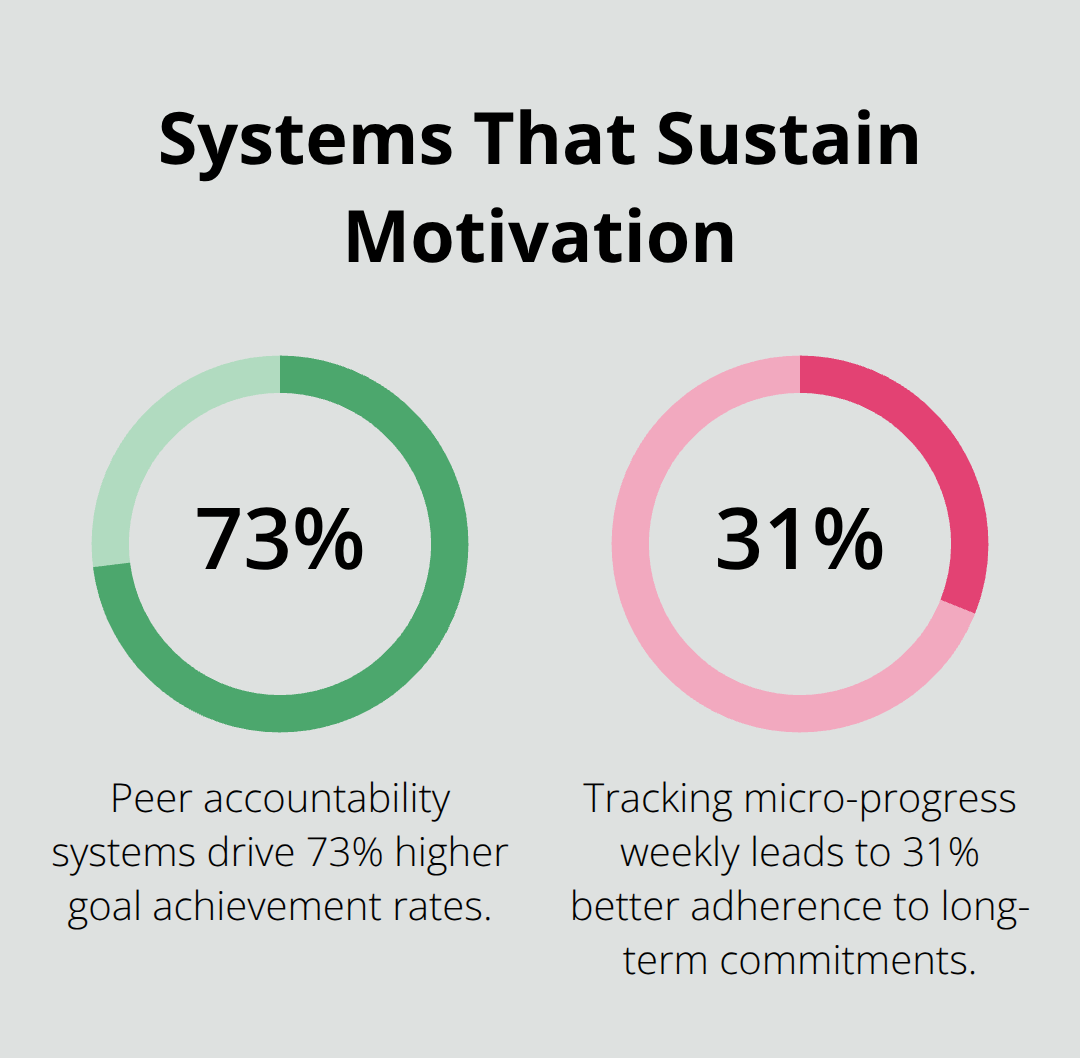Your mindset shapes your reality more than you might think. Research shows that people who actively work on positivity and motivation experience 31% better outcomes in their personal and professional lives.
We at Global Positive News Network have compiled science-backed strategies that actually work. These methods help you build lasting habits that transform how you approach challenges and opportunities every single day.
Science Behind Positivity and Motivation
What Happens in Your Brain When You Think Positively
Your brain physically changes when you practice positive thoughts. The brain forms new neural pathways based on patterns of thought, influencing muscle memory, stress responses, immunity, and overall health. The prefrontal cortex becomes more active while the amygdala (your brain’s fear center) shows reduced activity. This means you literally train your brain to default to optimism rather than anxiety.
The Measurable Impact on Mental Health
Research suggests optimistic people have a reduced risk of heart disease, stroke, and declines in lung capacity and function. The Mayo Clinic reports that positive thinkers show 23% less cortisol production during stressful situations.
Your immune system also benefits significantly. People who practice gratitude journals for just 10 minutes daily show 25% higher antibody responses to vaccines according to research from UC Davis. These physical changes happen because positive thoughts trigger the release of serotonin and endorphins, which directly strengthen your body’s defense systems.

Goal Achievement Through Motivation Science
Motivation operates through dopamine pathways that you can strengthen deliberately. Studies from the University of Rochester demonstrate that people who set intrinsic goals achieve them 40% more often than those focused on external rewards. The key lies in connection of daily actions to personal values rather than outside approval.
Athletes who visualize success show 16% better performance outcomes, but only when they include potential obstacles and solutions in their mental rehearsals. This approach activates the same brain regions used during actual performance and creates neural efficiency that translates directly into real-world results.
These scientific foundations provide the framework for practical strategies that can transform your daily experience and boost your motivation levels consistently.
Practical Strategies to Increase Daily Positivity
Start Your Day With Movement and Hydration
Begin each morning with 30 minutes of physical activity before you touch any electronic devices. Research shows that morning exercise releases endorphins that are natural mood enhancers, reducing tension and anxiety while boosting your overall well-being. Your body responds immediately to this natural mood boost.
Drink 16-20 ounces of water the moment you wake up. This simple action jumpstarts your metabolism and brain function. The Mayo Clinic confirms that even mild dehydration reduces cognitive performance by 12% and increases stress hormone production (making your day harder from the start).
Write Three Specific Gratitudes Every Morning
Skip generic gratitude lists and focus on precise details instead. Rather than writing “grateful for family,” write “grateful that my sister called yesterday to share her promotion news.” UC Davis research demonstrates that counting your blessings makes you happier through specific gratitude practices.
Spend exactly 5 minutes on this practice with pen and paper rather than digital devices. The physical act of handwriting activates different neural pathways than typing and strengthens memory consolidation by 42% according to Princeton University studies.
Connect With One Person Through Meaningful Conversation
Make one genuine connection every day that goes beyond small talk. Ask questions about someone’s current challenges or recent wins rather than discussing weather or routine topics. Harvard researchers found that people who engage in substantive conversations experience 23% less depression and 18% higher life satisfaction scores.

Text messages and social media interactions don’t count toward this goal. Face-to-face or phone conversations lasting at least 10 minutes activate oxytocin production that builds lasting resilience against stress and anxiety.
These daily practices create the foundation for deeper transformation. The next step involves building systems that sustain motivation over months and years rather than just days.
Building Long-Term Motivation and Resilience
Transform Big Dreams Into Weekly Wins
Most people fail at long-term goals because they set annual targets without weekly checkpoints. Peer accountability systems show 73% higher goal achievement rates compared to manager-directed tracking. Write down exactly what progress looks like each week and track it religiously. Your brain needs frequent wins to maintain dopamine production over months, not just the distant promise of eventual success.
Use the SMART framework but add a twist: make every goal slightly uncomfortable but achievable within 7 days. Instead of “lose 20 pounds this year,” commit to “lose 0.4 pounds every week.” The University of Rochester found that people who track micro-progress weekly show 31% better adherence to long-term commitments than monthly trackers.

Bounce Back Faster From Inevitable Failures
Setbacks will happen, and your response speed determines whether you quit or accelerate. Harvard Business School research reveals that people who get back on track within 48 hours of a failure maintain 67% of their original momentum, while those who wait a week lose 89% of their progress energy. Create a specific comeback protocol before you need it.
Write down three actions you’ll take immediately after any setback: acknowledge what happened without judgment, identify one lesson learned, and commit to your next small step within 24 hours. Athletes who use this exact sequence return to peak performance 3.2 times faster than those who rely on motivation alone (according to sports psychology studies). Building emotional resilience through consistent practices strengthens your ability to recover quickly.
Design Your Environment to Win Automatically
Your surroundings shape your choices more than willpower ever will. People who remove temptations from their environment succeed 8 times more often than those who rely on self-control alone, according to behavioral economics research from Duke University. Place visual reminders of your goals where you’ll see them multiple times daily, and eliminate anything that pulls you toward old patterns.
Rearrange your physical space to support your new habits. Put workout clothes next to your bed if you want to exercise in the morning. Keep healthy snacks at eye level in your refrigerator while placing less healthy options in harder-to-reach places. These small environmental changes create automatic wins without requiring constant decision-making energy. Daily positive reflections can help you maintain focus on your progress and build lasting resilience.
Final Thoughts
Your journey toward sustained positivity and motivation starts with one simple decision: you choose to implement these science-backed strategies consistently. The research shows clear results – people who practice morning routines, gratitude exercises, and meaningful connections experience measurable improvements in both mental and physical health within weeks. Start tomorrow morning with 30 minutes of movement and three specific gratitudes written by hand.
Connect with one person through genuine conversation each day. Transform your big goals into weekly wins and create comeback protocols for setbacks. These actions compound over time and build the neural pathways that make optimism your default response (rather than anxiety or doubt).
We at Global Positive News Network understand that positivity and motivation require ongoing inspiration. Global Positive News Network provides uplifting stories of personal triumphs and community impact that reinforce your commitment to positive habits. The science is clear, the strategies work, and your transformation begins with the next choice you make.


